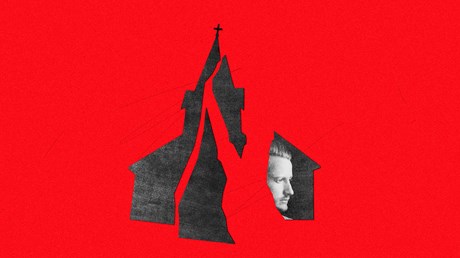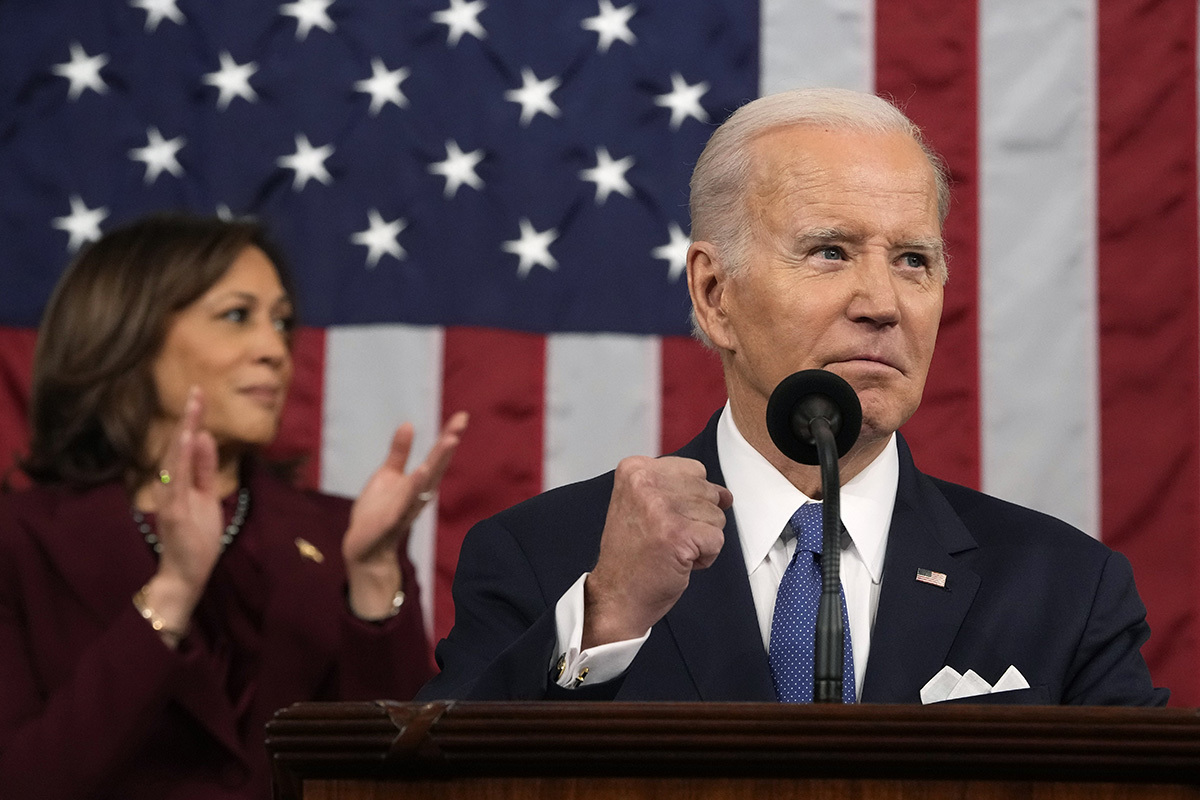Search Results for Maine
Links
Walkerton Indiana (IN)
|
Auburn Maine (ME)
|
Whiting Maine (ME)
|
Articles
Seeking a Senior Pastor
|
An Historic Look at Protestant Eschatological Thought on the Rise and Fall of Islam
|
News
But experts say it can offer opportunities for leaders and congregations to grow.
 Conflict had become the norm at Trinity Church in Redlands, California.The lead pastor left in 2022 amid a wave of disgruntled attendees. Following his departure, some church members remained upset at the congregation’s elders. In all, there had been at least a dozen situations that came up over a 14-year period.When Doug Baker arrived as interim pastor, he knew the conflict had to be addressed. Trinity called in Peacemaker Ministries, a group that mediates conflicts from a biblical perspective. Over a weekend in March 2023, Peacemaker held 15 meetings with people embroiled in the church conflict, put together a plan, and peace began to emerge.Healing started. Many conflicts were resolved. Some people forgave. Some left the church. Trinity, which now averages 500 attendees in Sunday worship, began to change.The conflict resolution process revealed that the congregation didn’t feel as if the elders valued their opinions. The elders began to listen humbly, and they have kept listening. Two elders stand at the welcome booth each Sunday to hear people’s opinions about church matters. According to Baker, “conversations have opened back up.”The situation at Trinity has “been better—much, much better,” he said. “There is a peace. There is a graciousness, a unity, a love for each other and for the lost. People are reengaging with ministry. We are seeing specific ministries thriving a whole lot better because people are not worried about the struggle. They are more concerned about the kingdom.”According to church conflict researchers, Trinity illustrates some broader trends. Conflict often provokes pastors to leave their churches or at least consider leaving, researchers ...Continue reading... Conflict had become the norm at Trinity Church in Redlands, California.The lead pastor left in 2022 amid a wave of disgruntled attendees. Following his departure, some church members remained upset at the congregation’s elders. In all, there had been at least a dozen situations that came up over a 14-year period.When Doug Baker arrived as interim pastor, he knew the conflict had to be addressed. Trinity called in Peacemaker Ministries, a group that mediates conflicts from a biblical perspective. Over a weekend in March 2023, Peacemaker held 15 meetings with people embroiled in the church conflict, put together a plan, and peace began to emerge.Healing started. Many conflicts were resolved. Some people forgave. Some left the church. Trinity, which now averages 500 attendees in Sunday worship, began to change.The conflict resolution process revealed that the congregation didn’t feel as if the elders valued their opinions. The elders began to listen humbly, and they have kept listening. Two elders stand at the welcome booth each Sunday to hear people’s opinions about church matters. According to Baker, “conversations have opened back up.”The situation at Trinity has “been better—much, much better,” he said. “There is a peace. There is a graciousness, a unity, a love for each other and for the lost. People are reengaging with ministry. We are seeing specific ministries thriving a whole lot better because people are not worried about the struggle. They are more concerned about the kingdom.”According to church conflict researchers, Trinity illustrates some broader trends. Conflict often provokes pastors to leave their churches or at least consider leaving, researchers ...Continue reading... |
But experts say it can offer opportunities for leaders and congregations to grow.
 Conflict had become the norm at Trinity Church in Redlands, California.The lead pastor left in 2022 amid a wave of disgruntled attendees. Following his departure, some church members remained upset at the congregation’s elders. In all, there had been at least a dozen situations that came up over a 14-year period.When Doug Baker arrived as interim pastor, he knew the conflict had to be addressed. Trinity called in Peacemaker Ministries, a group that mediates conflicts from a biblical perspective. Over a weekend in March 2023, Peacemaker held 15 meetings with people embroiled in the church conflict, put together a plan, and peace began to emerge.Healing started. Many conflicts were resolved. Some people forgave. Some left the church. Trinity, which now averages 500 attendees in Sunday worship, began to change.The conflict resolution process revealed that the congregation didn’t feel as if the elders valued their opinions. The elders began to listen humbly, and they have kept listening. Two elders stand at the welcome booth each Sunday to hear people’s opinions about church matters. According to Baker, “conversations have opened back up.”The situation at Trinity has “been better—much, much better,” he said. “There is a peace. There is a graciousness, a unity, a love for each other and for the lost. People are reengaging with ministry. We are seeing specific ministries thriving a whole lot better because people are not worried about the struggle. They are more concerned about the kingdom.”According to church conflict researchers, Trinity illustrates some broader trends. Conflict often provokes pastors to leave their churches or at least consider leaving, researchers ...Continue reading... Conflict had become the norm at Trinity Church in Redlands, California.The lead pastor left in 2022 amid a wave of disgruntled attendees. Following his departure, some church members remained upset at the congregation’s elders. In all, there had been at least a dozen situations that came up over a 14-year period.When Doug Baker arrived as interim pastor, he knew the conflict had to be addressed. Trinity called in Peacemaker Ministries, a group that mediates conflicts from a biblical perspective. Over a weekend in March 2023, Peacemaker held 15 meetings with people embroiled in the church conflict, put together a plan, and peace began to emerge.Healing started. Many conflicts were resolved. Some people forgave. Some left the church. Trinity, which now averages 500 attendees in Sunday worship, began to change.The conflict resolution process revealed that the congregation didn’t feel as if the elders valued their opinions. The elders began to listen humbly, and they have kept listening. Two elders stand at the welcome booth each Sunday to hear people’s opinions about church matters. According to Baker, “conversations have opened back up.”The situation at Trinity has “been better—much, much better,” he said. “There is a peace. There is a graciousness, a unity, a love for each other and for the lost. People are reengaging with ministry. We are seeing specific ministries thriving a whole lot better because people are not worried about the struggle. They are more concerned about the kingdom.”According to church conflict researchers, Trinity illustrates some broader trends. Conflict often provokes pastors to leave their churches or at least consider leaving, researchers ...Continue reading... |
But experts say it can offer opportunities for leaders and congregations to grow.
 Conflict had become the norm at Trinity Church in Redlands, California.The lead pastor left in 2022 amid a wave of disgruntled attendees. Following his departure, some church members remained upset at the congregation’s elders. In all, there had been at least a dozen situations that came up over a 14-year period.When Doug Baker arrived as interim pastor, he knew the conflict had to be addressed. Trinity called in Peacemaker Ministries, a group that mediates conflicts from a biblical perspective. Over a weekend in March 2023, Peacemaker held 15 meetings with people embroiled in the church conflict, put together a plan, and peace began to emerge.Healing started. Many conflicts were resolved. Some people forgave. Some left the church. Trinity, which now averages 500 attendees in Sunday worship, began to change.The conflict resolution process revealed that the congregation didn’t feel as if the elders valued their opinions. The elders began to listen humbly, and they have kept listening. Two elders stand at the welcome booth each Sunday to hear people’s opinions about church matters. According to Baker, “conversations have opened back up.”The situation at Trinity has “been better—much, much better,” he said. “There is a peace. There is a graciousness, a unity, a love for each other and for the lost. People are reengaging with ministry. We are seeing specific ministries thriving a whole lot better because people are not worried about the struggle. They are more concerned about the kingdom.”According to church conflict researchers, Trinity illustrates some broader trends. Conflict often provokes pastors to leave their churches or at least consider leaving, researchers ...Continue reading... Conflict had become the norm at Trinity Church in Redlands, California.The lead pastor left in 2022 amid a wave of disgruntled attendees. Following his departure, some church members remained upset at the congregation’s elders. In all, there had been at least a dozen situations that came up over a 14-year period.When Doug Baker arrived as interim pastor, he knew the conflict had to be addressed. Trinity called in Peacemaker Ministries, a group that mediates conflicts from a biblical perspective. Over a weekend in March 2023, Peacemaker held 15 meetings with people embroiled in the church conflict, put together a plan, and peace began to emerge.Healing started. Many conflicts were resolved. Some people forgave. Some left the church. Trinity, which now averages 500 attendees in Sunday worship, began to change.The conflict resolution process revealed that the congregation didn’t feel as if the elders valued their opinions. The elders began to listen humbly, and they have kept listening. Two elders stand at the welcome booth each Sunday to hear people’s opinions about church matters. According to Baker, “conversations have opened back up.”The situation at Trinity has “been better—much, much better,” he said. “There is a peace. There is a graciousness, a unity, a love for each other and for the lost. People are reengaging with ministry. We are seeing specific ministries thriving a whole lot better because people are not worried about the struggle. They are more concerned about the kingdom.”According to church conflict researchers, Trinity illustrates some broader trends. Conflict often provokes pastors to leave their churches or at least consider leaving, researchers ...Continue reading... |
 With the 2024 presidential election taking place later this year, several candidates have thrown their hats into the ring even though a rematch between President Joe Biden and former President Donald Trump has consistently remained the most likely outcome.? Here are a few facts to know about each of the declared candidates running for president, including those who have since withdrawn from the race. With the 2024 presidential election taking place later this year, several candidates have thrown their hats into the ring even though a rematch between President Joe Biden and former President Donald Trump has consistently remained the most likely outcome.? Here are a few facts to know about each of the declared candidates running for president, including those who have since withdrawn from the race. |
Evangelical congregations from Texas to Maine plan outreach events in the path of totality.
 The plan in Vallonia, Indiana, involves moon pies.The sun will start to disappear at 1:49 p.m. The wide blue sky that stretches over the cornfields and soybeans along State Route 135 will grow darker and darker, until, after about an hour and 15 minutes, the small farming community of 379 souls will be cast into night.The moon—invisible to the human eye except as an empty space—will overshadow everything. For a minute, and then two, and then three, stars will be visible in the sky. The colors of the world will seem all wrong. And Vallonia will pass through eclipse totality.At Driftwood Christian Church, people will look up at the sky and say, “Wow!” and “Ooo!” and “Look at that!” And they will munch on moon pies decorated with the words of Jesus in John 8:12: “I am the light of the world. Whoever follows me will never walk in darkness.”Pastor Daniel Ison said it was the church’s evangelism committee that came up with the plan. They bought the cookie-and-marshmallow snacks and wrote out the Scripture verse, over and over, hundreds of times.The Independent Christian Church of about 170 doesn’t know how many visitors they’ll get. But they expect a lot of people will drive out to see the eclipse on Monday, April 8. The celestial phenomenon is a rare thing and there won’t be another one in the contiguous US for another 20 years. So the congregation decided to open up the church, its bathrooms, and the field around their building to welcome out-of-town visitors to a celebration of creation.“That God created something like this for us to enjoy—God’s just like, Enjoy my creation, on an epic scale!—I think you just have to ...Continue reading... The plan in Vallonia, Indiana, involves moon pies.The sun will start to disappear at 1:49 p.m. The wide blue sky that stretches over the cornfields and soybeans along State Route 135 will grow darker and darker, until, after about an hour and 15 minutes, the small farming community of 379 souls will be cast into night.The moon—invisible to the human eye except as an empty space—will overshadow everything. For a minute, and then two, and then three, stars will be visible in the sky. The colors of the world will seem all wrong. And Vallonia will pass through eclipse totality.At Driftwood Christian Church, people will look up at the sky and say, “Wow!” and “Ooo!” and “Look at that!” And they will munch on moon pies decorated with the words of Jesus in John 8:12: “I am the light of the world. Whoever follows me will never walk in darkness.”Pastor Daniel Ison said it was the church’s evangelism committee that came up with the plan. They bought the cookie-and-marshmallow snacks and wrote out the Scripture verse, over and over, hundreds of times.The Independent Christian Church of about 170 doesn’t know how many visitors they’ll get. But they expect a lot of people will drive out to see the eclipse on Monday, April 8. The celestial phenomenon is a rare thing and there won’t be another one in the contiguous US for another 20 years. So the congregation decided to open up the church, its bathrooms, and the field around their building to welcome out-of-town visitors to a celebration of creation.“That God created something like this for us to enjoy—God’s just like, Enjoy my creation, on an epic scale!—I think you just have to ...Continue reading... |



 Links
Links  Articles
Articles  Blogs
Blogs  Videos
Videos  News
News  Colors
Colors 

 New links
New links






